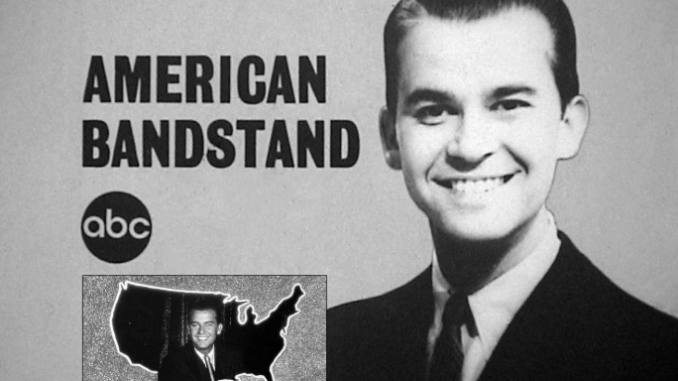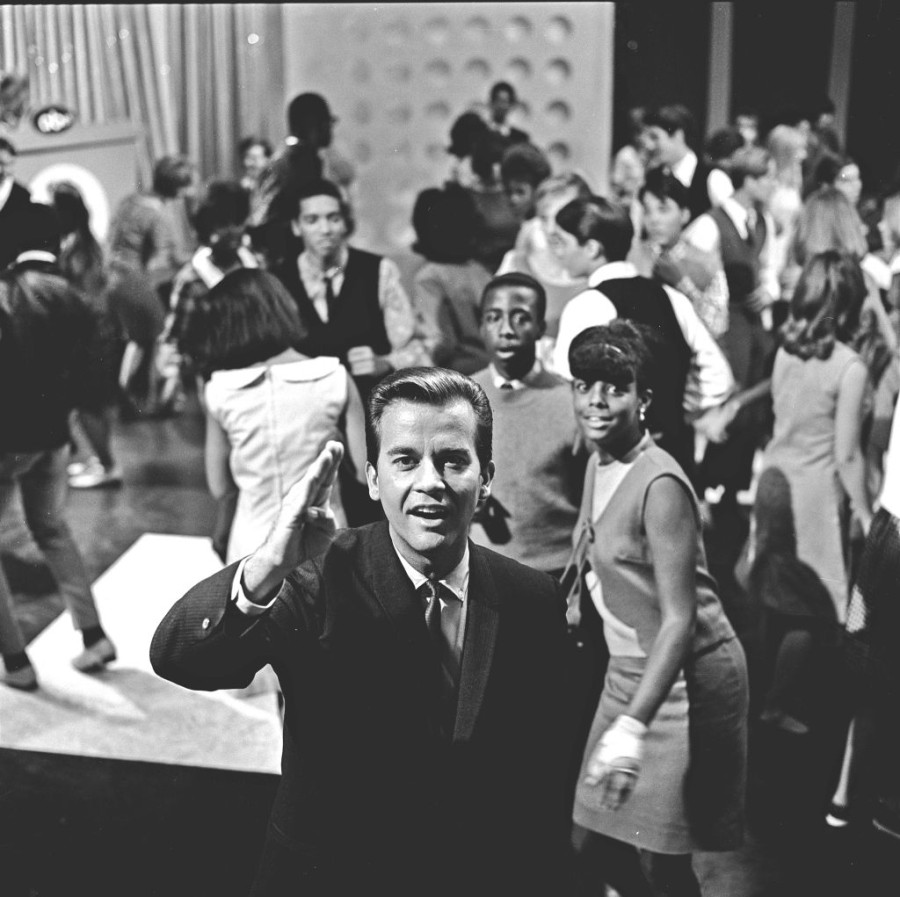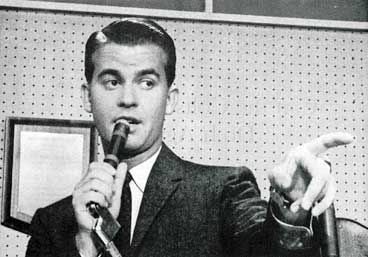
For generations of American teens, Saturday afternoon meant just one thing: turning on the television, twisting the radio dial down low, and getting ready to dance. At the heart of that weekly ritual stood one man, impeccably dressed, endlessly charming, and always smiling—Dick Clark.
He wasn’t just a host. He was the host. For over three decades, Dick Clark was the face of American Bandstand, and to this day, many still call him “America’s Oldest Teenager.”
From Philadelphia to the Nation
American Bandstand began in Philadelphia, a local dance show with modest beginnings. But when Dick Clark stepped in as host in 1956, everything changed. He brought a youthful energy to the program, treating teenagers not as children, but as real people with real taste.
That shift in tone was revolutionary.

Soon, ABC picked up the show for national syndication, and Dick Clark became a household name. Every teen from California to Maine knew his voice, his suit-and-tie look, and that ever-present sparkle in his eye.
The Secret to His Magic
What made Dick Clark so special?
He never talked down to his audience. He didn’t interrupt or outshine the stars—he made room for them to shine. Whether it was Paul Anka, The Supremes, or a local high schooler from Jersey dancing on camera, Dick treated everyone with equal grace.

And he had an incredible instinct. He could spot a hit before it climbed the charts, and he helped launch the careers of hundreds of artists by giving them a chance on Bandstand. Without Dick, many of those songs we still hum today may never have made it into our living rooms.
A Familiar Voice in Changing Times
Throughout the 1960s and ‘70s, as music changed from doo-wop to rock to disco, Dick Clark adapted—but never changed his spirit. He remained steady, reliable, and somehow always cool without ever trying too hard.
In an era when parents worried about “those rock ‘n roll kids,” Dick Clark offered a bridge—a safe, fun, and respectful space for teens to enjoy music and express themselves.

He was the guy every mom trusted, every dad respected, and every teen admired. He didn’t preach or perform. He just believed in music—and in the young people who loved it.
Moments We’ll Never Forget
Who could forget those moments? The sound of the theme music, the way Dick announced the next act, the “Rate-a-Record” segment where teens gave songs a score out of 100 (“It’s got a good beat and you can dance to it!”), or his smooth sign-offs:
“For now, Dick Clark… so long.”

When he left the show in 1989, it truly felt like the end of an era. But even then, Dick never disappeared. From New Year’s Rockin’ Eve to game shows and specials, he continued to bring joy to American homes for decades.
His Legacy Lives On
Today, younger generations may not fully grasp just how important Dick Clark was to pop culture. But for those of us who grew up with him, he wasn’t just a man on TV—he was part of the family.
He helped define our weekends, our music tastes, and our youth. He gave unknown singers their first big break. He gave teenagers a national stage. And he gave us all a reason to dance.
More memories of Dick Clark await here
💬 Do you have a small item that still connects you to your Bandstand days? A letter, a record, a picture, or a favorite pin?
We’d love to hear what you’ve kept—and why it still matters.
📝 Share your story with us here: